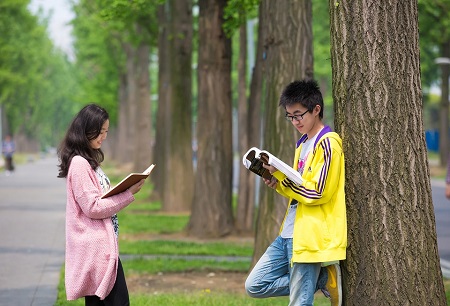School Psychology
School psychology is a field that applies principles of educational psychology, developmental psychology, clinical psychology, community psychology, and applied behavior analysis to meet children's and adolescents' behavioral health and learning needs in a collaborative manner with educators and parents. School psychologists are educated in psychology, child and adolescent development, child and adolescent psychopathology, education, family and parenting practices, learning theories, and personality theories. They are knowledgeable about effective instruction and effective schools. They are trained to carry out psychological testing and psychoeducational assessment, counseling, and consultation, and in the ethical, legal and administrative codes of their profession.
psychology is a field that applies principles of educational psychology, developmental psychology, clinical psychology, community psychology, and applied behavior analysis to meet children's and adolescents' behavioral health and learning needs in a collaborative manner with educators and parents. School psychologists are educated in psychology, child and adolescent development, child and adolescent psychopathology, education, family and parenting practices, learning theories, and personality theories. They are knowledgeable about effective instruction and effective schools. They are trained to carry out psychological testing and psychoeducational assessment, counseling, and consultation, and in the ethical, legal and administrative codes of their profession.
School psychology dates back to the beginning of American psychology in the late 19th and early 20th centuries. The field is tied to both functional and clinical psychology. School psychology actually came out of functional psychology. School psychologists were interested in childhood behaviors, learning processes, and dysfunction with life or in the brain itself. They wanted to understand the causes of the behaviors and their effects on learning. In addition to its origins in functional psychology, school psychology is also the earliest example of clinical psychology, beginning around 1890. While both clinical and school psychologists wanted to help improve the lives of children, they approached it in different ways. School psychologists were concerned with school learning and childhood behavioral problems, which largely contrasts the mental health focus of clinical psychologists.
Another significant event in the foundation of school psychology as it is today was the Thayer Conference. The Thayer Conference was first held in August 1954 in West Point, New York in Hotel Thayer. The 9 day-long conference was conducted by the American Psychological Association (APA). The purpose of the conference was to develop a position on the roles, functions, and necessary training and credentialing of a school psychologist. At the conference, forty-eight participants that represented practitioners and trainers of school psychologists discussed the roles and functions of a school psychologist and the most appropriate way to train them.
School psychologists are experts in both psychology and education. They provide many services that include the educational, emotional, social, and behavioral challenges that many children, youth, and young adults experience (typically ages birth to age 21 years). Children are their primary clients but they also work collaboratively with teachers, school administrators, parents, and community services to best serve children. School psychologists provide intervention and treatment to reach goals. They assist with trauma and crisis; work with children, teachers, and families to deal with hurdles that are preventing success; educate and expand skills to cope with problems. They utilize prevention and early intervention to limit troubles in children’s lives and in the school environment. School psychologists help create an equal and encouraging school, bring attention to mental health issues and develop ways to deal with issues individually and school-wide, they team up with teachers and parents to address effective behavior plans, and ensure acceptance and value of diversity. School psychologists administer assessments and address difficulties all students face in psychological, social, personal, emotional, and educational/learning development. They also review and revise techniques to deal with problems of students and in schools to maintain a good, safe setting. They provide consultation and case management by ensuring students’ needs are met; speak out for students in and out of the school; make sure all people involved with the student are aware of the needs of the student, what resources are available, and how to get the services; aid in the communication between parents, schools, and community services; and modify achievement plans to best meet needs of student. School psychologists seek assistance from community services in mental health, health, and crisis response; educate the public, parents, and schools through trainings on issues facing students and schools. Finally, School Psychologists are experts in research. As noted by the National Association of School Psychologists (NASP, 2007) and the American Psychological Association (APA, 2007), school psychologists adhere to the scientist-practitioner framework and make decisions based on empirical research. School psychologists must be aware of and contribute to the study of the best approaches to helping students, families, and schools reach their goals. Although school psychologists understand that schools are important in the lives of young people, not all school psychologists are employed in schools. Many school psychologists, particularly those with doctoral degrees, practice in other settings, including clinics, hospitals, forensic settings, correctional facilities, universities, and independent practice.
Finally, School Psychologists are experts in research. As noted by the National Association of School Psychologists (NASP, 2007) and the American Psychological Association (APA, 2007), school psychologists adhere to the scientist-practitioner framework and make decisions based on empirical research. School psychologists must be aware of and contribute to the study of the best approaches to helping students, families, and schools reach their goals. Although school psychologists understand that schools are important in the lives of young people, not all school psychologists are employed in schools. Many school psychologists, particularly those with doctoral degrees, practice in other settings, including clinics, hospitals, forensic settings, correctional facilities, universities, and independent practice.
Source: School Psychology
